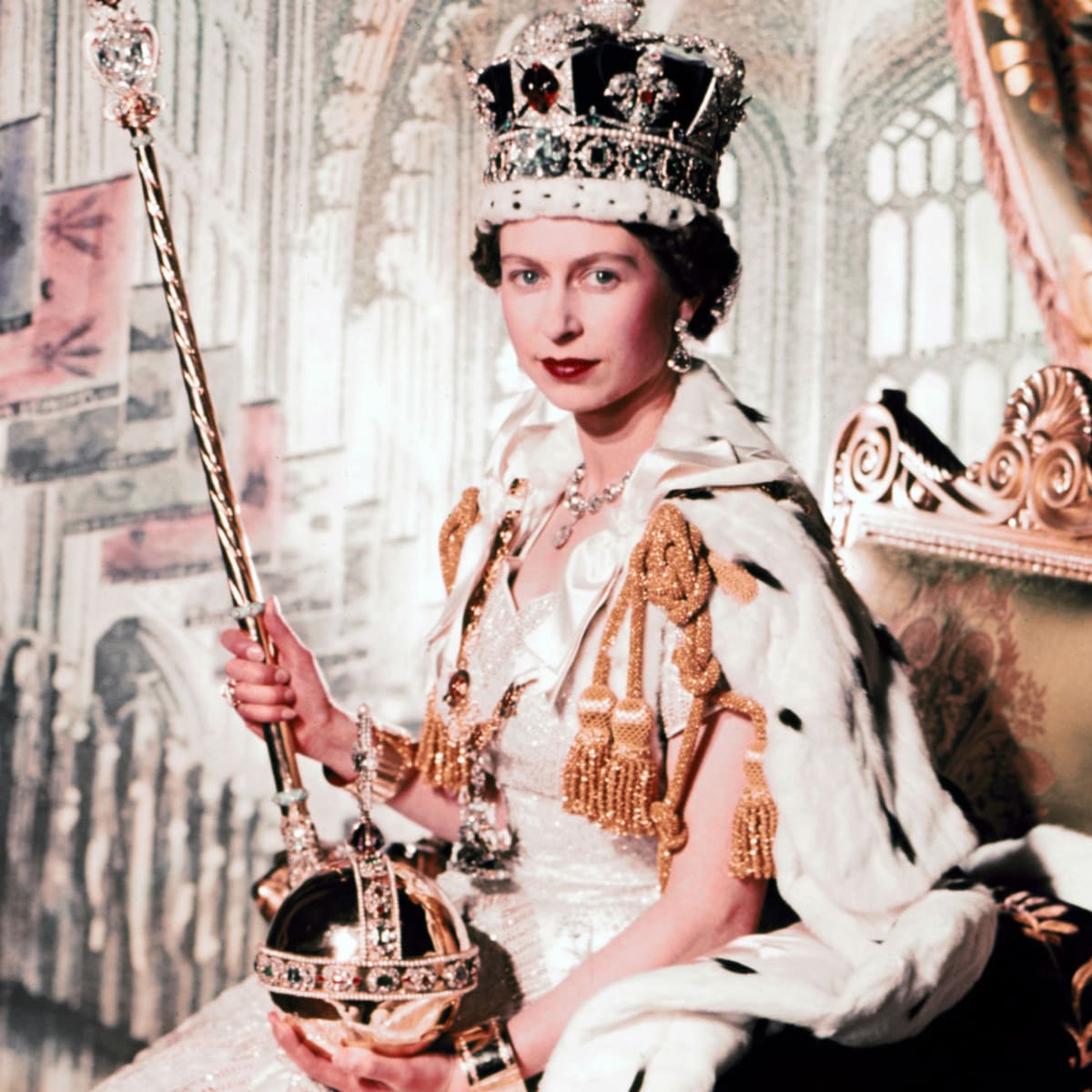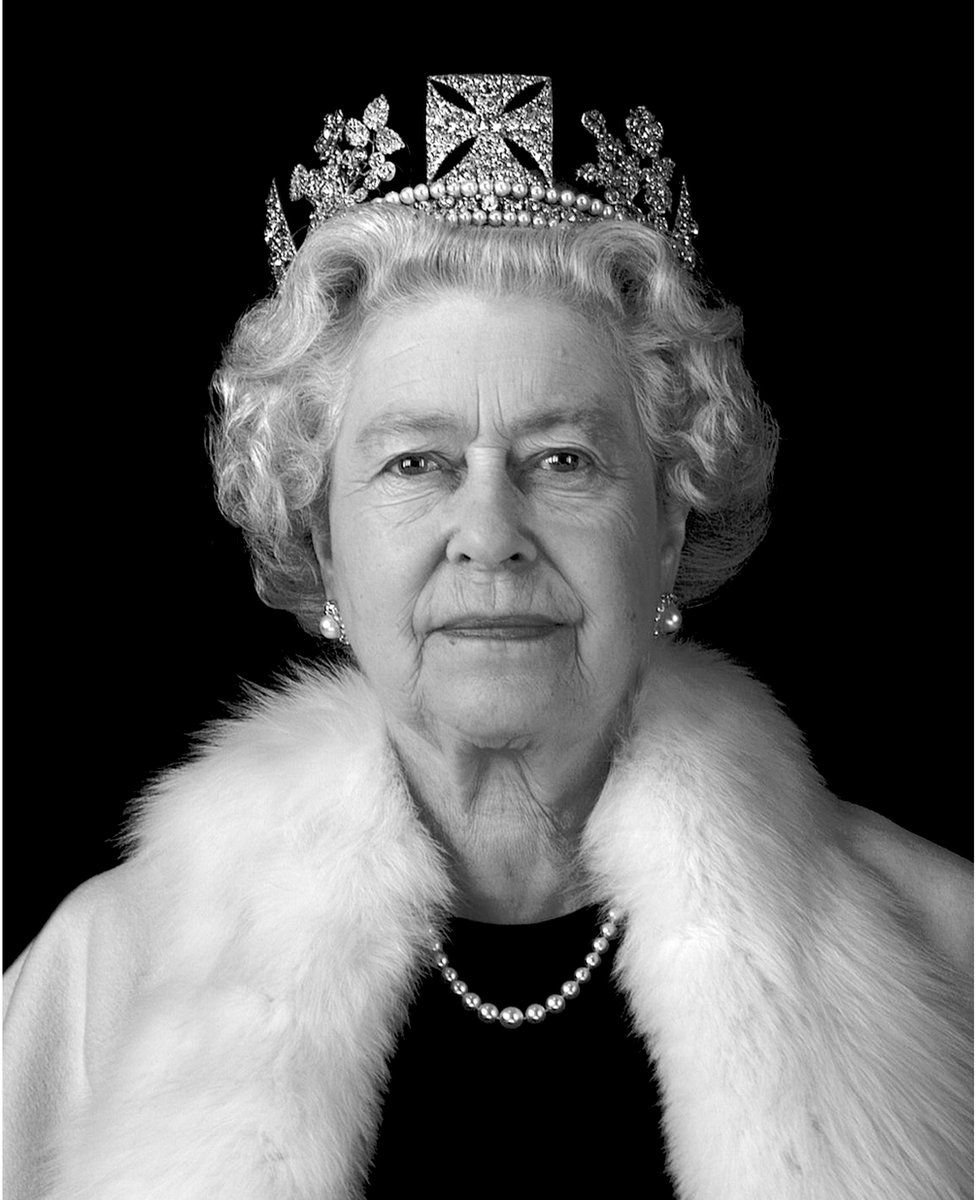
Iconic Women Leaders and Queen Elizabeth II

Equanimity, 2004, copyright of Chris Levine, www.chrislevine.com, commissioned by Jersey Heritage Trust bbcnews obituary
Was Queen Elizabeth II an iconic woman leader, or would she have disdained that idea with one of her trademark slight smiles and steely-eyed gazes? As the world mourns her death at age 96 — she was the longest-serving world monarch, on the throne for 70 years — we necessarily contemplate her historic legacy on the world stage.
Was Queen Elizabeth II a feminist? asks Washington Post London Correspondent Karla Adam in a story published the day after Elizabeth died. The answer, it seems, depends on how we define feminist behavior since the Queen, herself, never uttered a word about the topic. Writing in Britain’s The Guardian, Columnist Rachel Cooke notes, “It would be preposterous to describe the Queen as feminist. If she ever uttered the word, it is not recorded…But this isn’t to say that her ascension to the throne wasn’t a significant marker on the road to second wave feminism.”
Elizabeth became queen before I was born; she was the only British monarch of my experience. But I certainly never viewed her as a role model or pathbreaker — sorry, but true, she seemed something of a fuddy-duddy in her middle-aged years, that handbag and those outfits, and heck, we Americans were so much more modern than those stuffy royals. It all seemed like a play and very far away. Only more recently have I come to appreciate how the Queen fulfilled her role with a sense of purpose and dignity throughout her life. She came into the role through an accident of history — the abdication of her uncle King Edward VIII, leading to the coronation of her father King George VI, and her accession to the throne after her father’s death. On her 21st birthday, four years before she became Queen, Elizabeth swore that she would devote her entire life to service to the people of England, and she fulfilled that solemn oath every day thereafter.
Something happened to Elizabeth’s image and our perception of her as she matured, and the scandals and tragedies of her family had a lot to do with that. The death of Diana 25 years ago was, perhaps, the pivot point. While the Queen initially seemed to have no response to the tragedy (Charles and Diana had divorced — and Diana seemed to be almost taunting the royals with her very public affair with Dodi Al Fayed), advisors soon convinced the Queen that she had to be responsive and compassionate in making a public statement about Diana’s death. The Queen’s subsequent national television broadcast and appearance at the funeral helped to assuage bitterness that many Britons expressed toward her and the family. In more recent years, the Queen seemed to become more attuned to the public mood about royalty, and she cooperated in more public appearances designed to humanize her role.
But while Queen Elizabeth now receives abundant praise and reverence from all corners of the earth, it’s also true that she did not leverage her role to address critical issues where a word from her might have made a difference. Her defenders are quick to point out that the monarch has no political role, that remaining silent is the conventional expectation, and what she might have thought or said privately would remain private. We have to ask, however, whether that tradition of restraint and silence squanders opportunities to have an impact in ways that would create genuine social change. For example, King Charles III, when he was the Prince of Wales, was an advocate for environmental sustainability — why would he remain silent now that he is king?
In the same way, a word from the Queen about racial equity and freedom for the peoples of the former British colonies might have hastened the liberation that continues to be a struggle in too many places. She might have demonstrated a level of moral commitment to real justice; her silence suggested quite the opposite, a defense of the colonialism that oppressed so many citizens of nations under British rule. And while not expecting her to be an ardent advocate for feminism, a bit more forthright championing of women’s leadership might have encouraged other aspiring women leaders.
Queen Elizabeth was certainly an iconic leader across the last 70 years, and the outpouring of affection for her during this period of mourning demonstrates the myriad ways she touched and inspired people around the world. We will not see her likes again. At the same time, we can also hope that her son King Charles, and his son-and-future-king Prince William, will be more progressive in leveraging their roles to champion the values of justice, equity and freedom that are essential to sustain good and peaceful societies.
And, by the way, as Americans swoon over the impressive British displays of love and loyalty for their queen (does everybody keep closets full of those gorgeous uniforms?), let us remember that we fought a bloody war more than 230 years ago to liberate this nation from the oppression of the British Empire and its monarchy. We also fought in two bloody wars in the 20th Century to help Great Britain defeat the fascist menace that still circulates in new and pernicious ways in Europe and even in the United States.
Respect Queen Elizabeth, of course! But remember our American commitment to freedom and democracy, always.
Rest in peace, Elizabeth Regina.